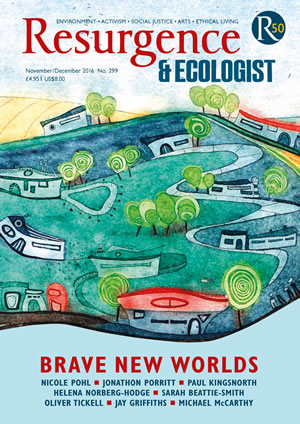Today, Thomas Hardy (1840–1928) is probably best known for his novels (or even their screen adaptations), but in his judgement the poetry he wrote carried a greater significance. “The highest imaginative genius”, he declared, “is that of the poet.”
Nowadays, the poetry may strike the reader as dated, for Hardy insisted on using a somewhat archaic language and, often, an elaborate syntax counter to the natural rhythms of English speech. You quickly encounter such quaint words as ‘yonder’, ‘ere’, ‘hap’, ‘nether’, ‘ditty’ and strained formulations such as ‘I sate’ for ‘I sat’.
At the same ...
There are approximately 918 more words in this article.
To read the rest of this article, please buy this issue, or join the Resurgence Trust. As a member you will receive access to the complete archive of magazines from May 1966.
If you are already a member, please Sign in







